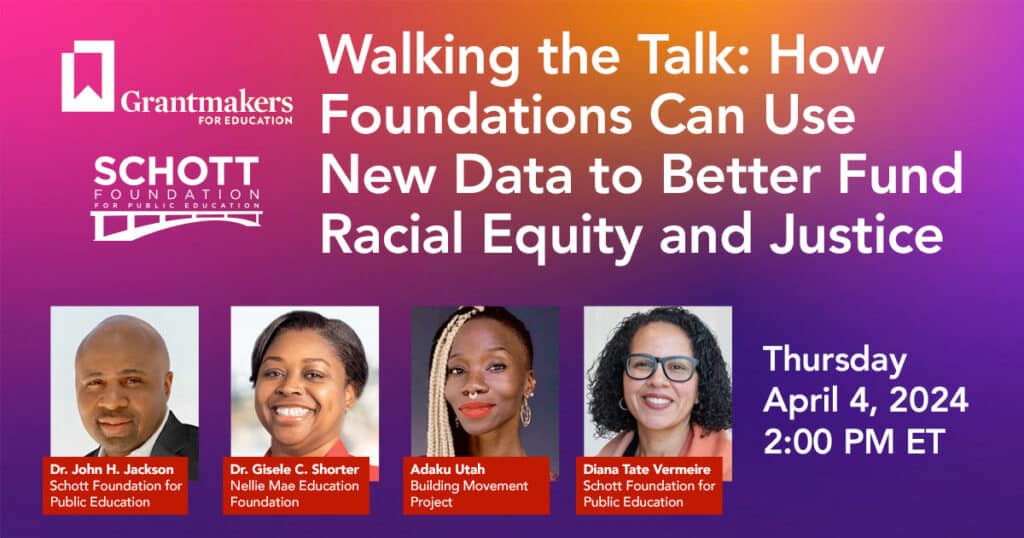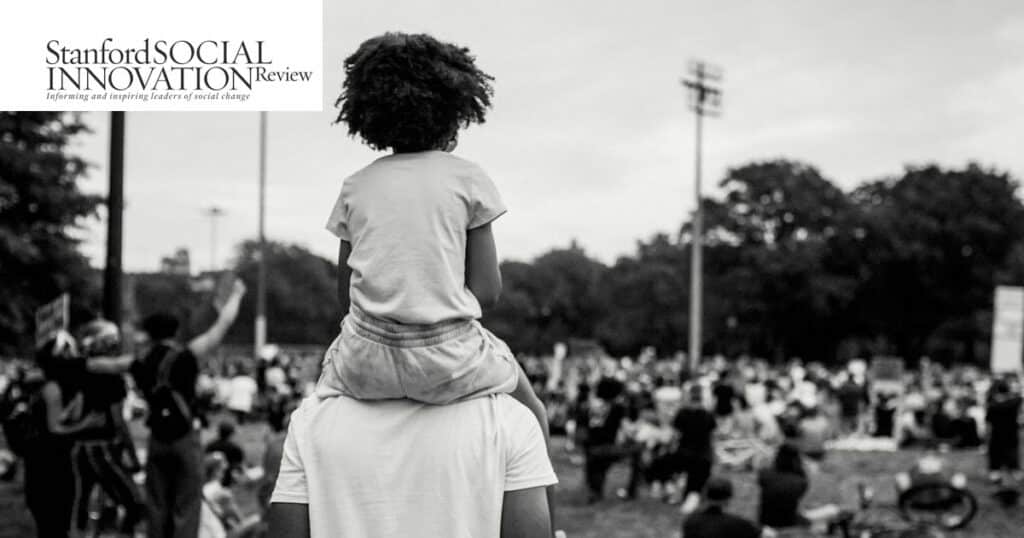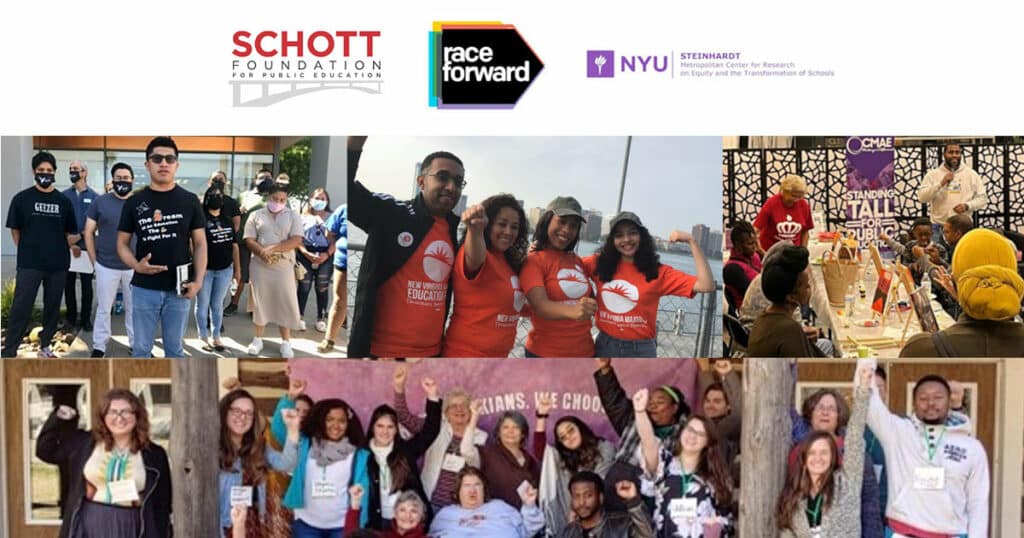Blog
Walking the Talk: How Foundations Can Use New Data to Better Fund Racial Equity and Justice

The data is in: K-12 philanthropic sector is drastically underfunding racial equity and justice work, and the level of investment has actually dropped since 2020.
We held a frank and honest discussion of Schott’s new Justice Is The Foundation education grantmaking data, lessons from racial justice funders and grassroots advocates, and next steps that funders should take.
Watch to learn grantmaking strategies — regardless of our budgets or program areas — to respond to this historic moment and opportunity by making transformative investments in racial equity and justice work.
Speakers included:
- Dr. John H. Jackson
President & CEO, Schott Foundation for Public Education - Dr. Gisele C. Shorter
President & CEO, Nellie Mae Education Foundation - Adaku Utah
Senior Manager of Movement Building Programs, Building Movement Project - Diana Tate Vermeire (Moderator)
Senior Vice President of Strategy, Schott Foundation for Public Education


